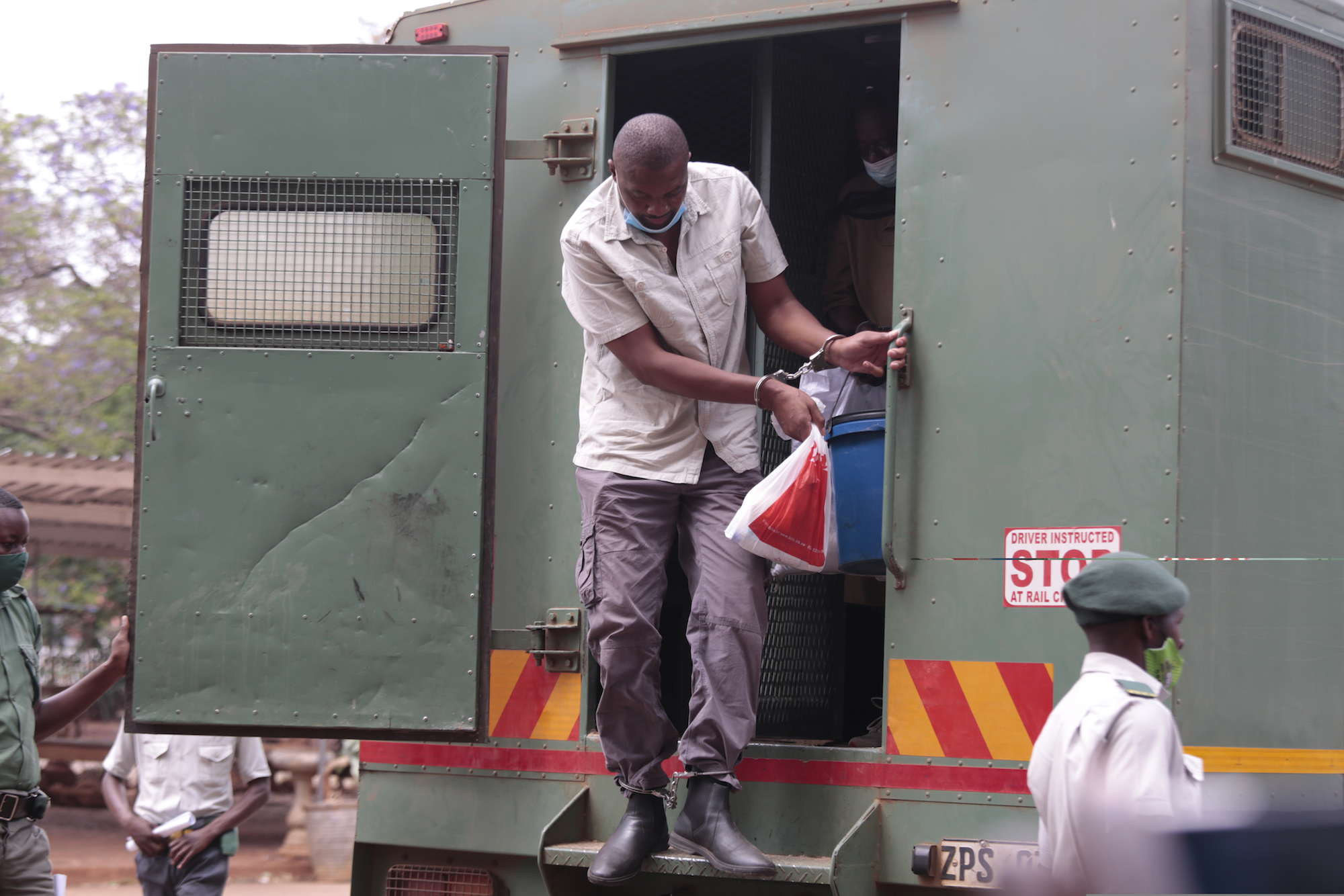As Zimbabwe heads into elections this week, a new law dubbed the ‘Patriot Bill’ will further criminalise journalism
Zimbabwe’s new ‘Patriot Bill’ was always going to be controversial. The Criminal Law Codification and Reform Bill was passed by the Senate in June this year and, finally, signed into law by President Emmerson Mnangagwa on July 14.
As the country hurtles towards national elections this week, this new law is a final nail in the coffin for press freedom in Zimbabwe.
With one of its major amendments designed to “create a new crime of wilfully injuring the sovereignty and national interest of Zimbabwe”, the new law is seen as little more than an instrument to silence perceived “state enemies” and, indeed, anyone vocal about human rights and deemed critical of the state - including journalists.
The Patriot Bill in its present form will significantly curtail journalists as it includes restrictions on meeting, cultivating and talking to sources, such as diplomats, for fear of being labelled “an agent of a foreign government”, which attracts a punitive penalty.
It further automatically bars journalists from discussing or investigating many important issues regarding national issues and sanctions. By nature, journalists are supposed to be inquisitive, open-minded, objective and are required to dig for relevant information from sources, including diplomats. The new law effectively criminalises this.
From the onset, the aim of the bill has been clear: to monitor and suppress journalists and activists questioning controversial electoral processes and resulting outcomes
When the draft bill was published in December 2022, few anticipated robust objections during scrutiny, especially from the ruling ZANU PF, which enjoys the assembly majority. Of course there have been some objections from opposition politicians, who say “the bill will stifle democratic space”, but not enough to prevent the bill from passing into law.
Judging from the most recent elections in 2018, the August 2023 elections will almost certainly result in re-election for the incumbent, despite rising discontent in the country. Just to make absolutely certain there is no dissent, the handy new Patriot Bill can be unleashed to deal with anyone questioning the outcome.
From the onset, the aim of the bill has been clear: to monitor, suppress, increase surveillance of political actors, journalists and activists questioning the existing controversial electoral processes and resulting outcomes.
Other regional observers have condemned the recent signing of the bill into an act, noting that it will limit the rights of Zimbabweans, already constricted by existing repressive laws.
Commenting on the bill, Khanyo Farisè, Amnesty International’s Deputy Research Director for Southern Africa, said: “The signing of the ‘Patriotic Bill’ into an Act by the President is a grave attack on the rights to freedom of expression, peaceful assembly and association.”
The major fear among local journalists is that the law will be used to stifle their freedoms and shut down democratic, critical spaces. The wording of the new law is sufficiently vague to allow interpretation which would harm journalism. Many fear it could be applied and abused to swiftly silence journalists in the aftermath of an expected disputed election outcome, in the guise of protecting the “interest and sovereignty” of the country.
For journalists in Zimbabwe, July 14, 2023 will be remembered as a black day for democracy and journalism
Back in 2021, Hopewell Chin’ono, a prominent journalist, was arrested for a third time for ‘communicating falsehoods’ using spurious laws. For him, and other journalists in Zimbabwe, July 14, 2023 will be remembered as a black day for democracy and journalism.
Responding to the passing of the bill, Chin’ono wrote: “A very sad day for Zimbabwe today as that country’s parliament has passed the Patriot Act bill into law. It seeks to destroy freedom of association and assembly. Free speech is now dead and any Zimbabwean holding a meeting with a foreign government official will be jailed.”
The Media Institute of Southern Africa (MISA) says the bill is a threat to free expression, journalists included. “It is feared that this law is designed to crack down on any form of dissent in the country and punishing citizens, civil society organisations and political adversaries exercising their right to free expression on national affairs.”
Veritas, which monitors lawmaking in Zimbabwe, stated: “In so far as the new crime penalises the consideration, planning or implementing of sanctions or boycotts, it will be a serious deterrent to free speech in Zimbabwe.”
The bill comes less than a year after the Cyber Security and Data Protection Bill, which also largely curtails the work of media and whistleblowers. It further cements laws which have resulted in opposition activist Job Sikhala being imprisoned for more than a year, without proper trial over a video, accused of “obstructing the course of justice”, for example.
In April this year, Jacob Ngarivhume, another politician, was sentenced to four years in prison for allegedly “inciting violence” using his Twitter account. And with the new act, which would appear to contravene Zimbabwe’s Constitution granting freedom of expression and association, the arrests of Chin’ono, Sikhala and Ngarivhume have set a precedent going forward.
Derick Matsengarwodzi is an independent journalist based in Zimbabwe
The views expressed in this article are the author’s own and do not necessarily reflect Al Jazeera Journalism Review’s editorial stance




















![Palestinian journalists attempt to connect to the internet using their phones in Rafah on the southern Gaza Strip. [Said Khatib/AFP]](/sites/default/files/ajr/2025/34962UB-highres-1705225575%20Large.jpeg)



















